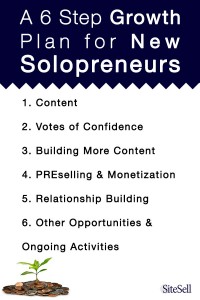Are you a leader in your business or in an organization? Then, you’re aware that one of the key tasks of a leader is to boost morale. You’re not just responsible for boosting your team’s morale at work but also your own.
Your team will pick up cues from your own attitudes and behaviors, which will impact how they approach challenges and problems at work.
Having a personal attitude of positivity makes it possible to meet challenges and perform well. Good morale at work will lead to greater productivity and positive outcomes for your business.
Sell-Esteem and Morale
A popular psychological concept is that you can boost self-esteem by achieving important goals. So, when your team does well at work it will lead to higher self-esteem and better morale.
However, when self-esteem depends on good performance, it means that poor outcomes must lead to low self-esteem and poor morale. The problem is that making mistakes is inevitable. It’s also impossible to control all external factors that can affect the outcome of a business decision.
Depending on self-esteem and consistently good performance is not a dependable long-term strategy. A more empowering and potent way to boost morale for others and for yourself is to embrace the concept of self-acceptance.
Self-Acceptance at Work
Self-acceptance, unlike self-esteem, does not depend on achievements and productivity. When you accept your whole persona, you also acknowledge that mistakes and flaws are a part of being human. This means that while problems and mistakes are corrected, there’s no need to indulge in severe self-blame.
Self-acceptance leads to a healthier mindset that supports personal and professional growth. It’s evident that self-acceptance can lead to better mental health than self-esteem which is dependent on consistently good performance and behavior.
Adopting self-acceptance in your personal life and that work will significantly boost employee satisfaction. it will also lead to better decision making, improved learning, and greater productivity.
Let’s dive deeper into the benefits that accepting oneself fully helps personal development and improves work-life in a positive way.
Grow from Mistakes Faster
Self-acceptance is an attitudinal shift that needs to happen from the top-down. Mistakes at work are unfortunate, but the positive result is that you now have the experience that prevents you from doing the same thing again.
It’s important to create an environment at work where employees are not reluctant to take informed risks. This means allowing mistakes to happen and learning from them.
Acceptance leads to measured risk-taking, learning, and out-of-the-box thinking. With greater acceptance, you are more likely to get greater productivity and creativity from your team.
Remove the Fear of Failure
It’s vital to create an environment where failure is acknowledged and quickly forgiven. When starting your own business, launching into a new market, on negotiating a deal, you are likely to experience failure at some point.
When you can move past failure quickly, you save time and resources. Having a fear of failure can prevent you from being proactive and from taking necessary steps in the future.
Self-acceptance at the organization, within teams, and at a personal level can remove the fear of failure. This means that you will have a team that will focus on innovation and will be willing to try new things.
An environment that is innovative, challenging, and exciting will lead to greater employee loyalty and a better work environment.
Greater Acceptance of Others
Self-acceptance and the acceptance of one’s flaws lead to the acceptance of others. By leading the way into being more accepting of your peers and employees you can boost morale and create a positive workspace.
Other-acceptance helps you open your mind and understand different perspectives. You can develop acceptance towards others acknowledging that people make mistakes, but it doesn’t color their entire personality. Other-acceptance will make it easier to maintain professional relationships at work.
A great way to build your other-acceptance mindset is by working on your active listening skills.
Active listening means paying full attention to the person who is speaking. There are a few other aspects that differentiate ‘active’ listening from how we usually listen to other people.
When you’re actively listening, you save your questions and opinions for later. You turn off distractions such as phones and also find time and the space to listen closely. The goal is to look for additional context through the tone of voice a person uses, as well as their body language, and by ‘reading between the lines’.
Active listening and an attitude of openness can go a long way towards other-acceptance. You are more patient of other people’s mistakes, look at different challenges as opportunities to learn, grow, and help each other.
Boost Morale with Self-Acceptance
Leadership is a multifaceted activity. As a leader, you need to create an environment of growth and innovation. It’s also essential to keep employee morale up and your own personal well being in good shape.
The attitude of self-acceptance is one of the most powerful ways that you can shape your work life and personal life for excellence.
However, it is important to realize that self-acceptance does not mean tolerance for any behavior. Rather, it focuses on avoiding overgeneralization and ensuring that you pay equal attention to positive as well as negative aspects of work, yourself, and others.
With self-acceptance, you will have a more balanced viewpoint of critical events at work. You’ll grow from your mistakes faster and move forward to make better decisions. It becomes easier to foster an environment of growth and innovation.
Developing self-acceptance and enabling your team members to do the same can create a positive culture at your workplace. Use the tips mentioned here and you’ll be able to grow your business even in difficult times.
Business & Finance Articles on Business 2 Community
(16)






